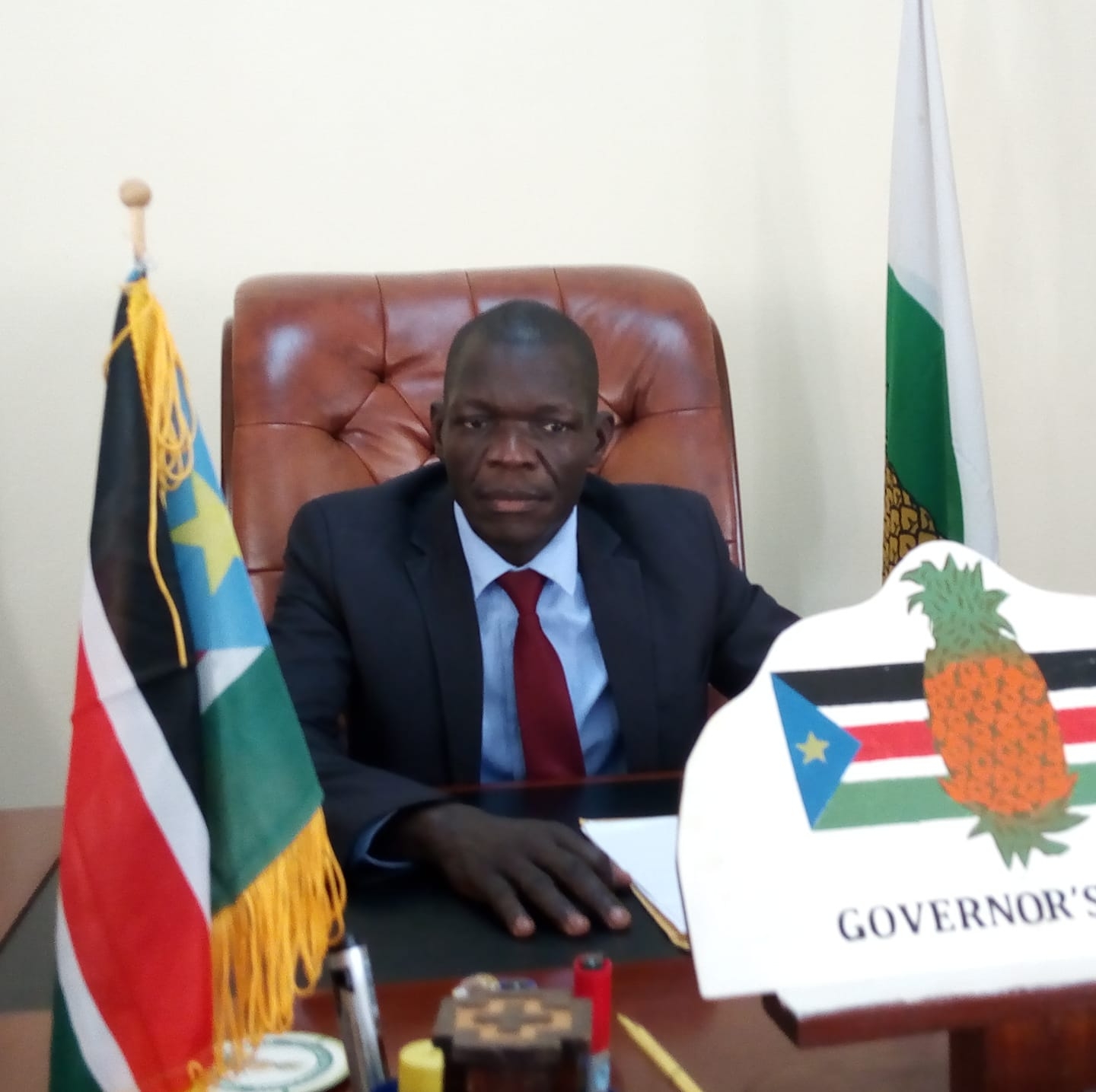A civil society activist in Western Equatoria has expressed dismay with the manner in which the governor launches or presents government projects as “gifts” to the state residents.
According to the Coordinator for the Community Empowerment for Progress Organization, governor Alfred Futuyo Karaba has referred to several public projects he initiated as “donations.”
“I call on the state governor to…minimizing ‘I donate and I donate,” Justin Ngbapi said.
He believes the governor has been using state resources to initiate projects and should not be personifying them.
Last week, governor Futuyo toured Mundri and Lui where he publicly said he donated an ambulance to Lui Hospital.
He also referred to –as donations –the distribution of bed-sheets, mosquito nets, among others.
State governors are currently operating without cabinets, legislatures or deputy governors. But governor Futuyo became the only governor, among the 9 governors, to appoint a Mayor for Yambio Municipality.
It is believed the Mayor has been levying taxes on traders in the town.
But it is not clear whether the projects initiated by governor Futuyo are funded by state resources or from his unexplained sources.
However, activist Justin Ngbapi said what the governor is doing should be considered as a constitutional obligation to provide services to the citizens of the states.
He described donations as gifts meant for charity, humanitarian aid, or to benefit a cause.
Ngbapi also urges governor Futuyo to desist from using donations as a form of service delivery and begin to initiate actual community development plan.
“The governor [should] shift from donations to local community structure…he should use the county local authority…to shift from donations toward the implementation of the community development plan,” Ngbapi advised.
The revitalized peace agreement mandates the Transitional Government and its State and local structures to rebuild and recover destroyed physical infrastructure and give special attention to prioritizing the rebuilding of livelihoods of those affected by the conflict.
It also expects both national and state governments to restructure, rehabilitate, and ensure radical reform of the civil service, among others.

